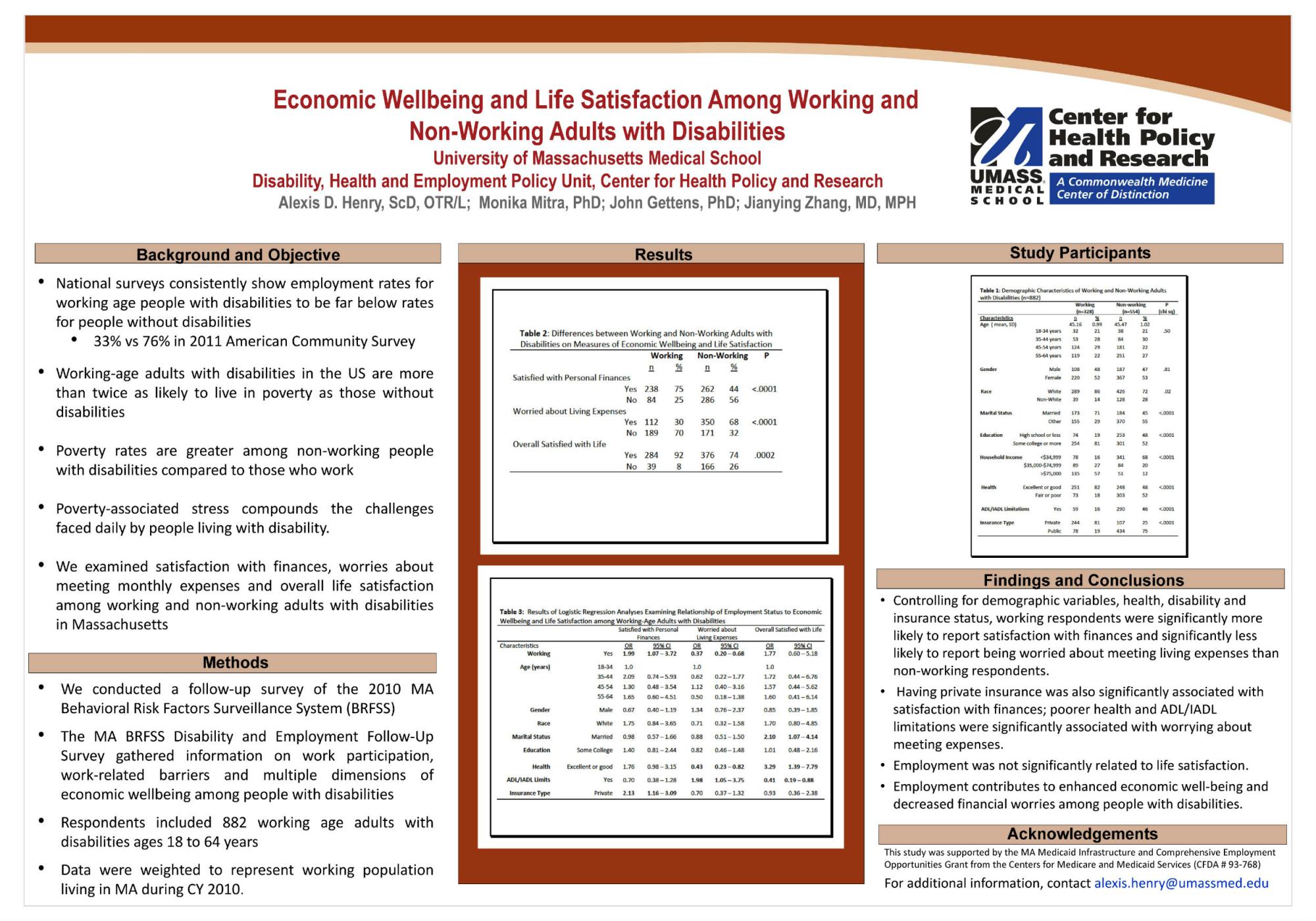Working-age adults with disabilities in the US are more than twice as likely to live in poverty as those without disabilities; poverty rates are greater among non-working people with disabilities compared to those who work. Poverty-associated stress compounds the challenges faced daily by people living with disability.
We examined satisfaction with finances, worries about meeting monthly expenses, and overall life satisfaction among working and non-working adults with disabilities using a 2010 Massachusetts Behavioral Risk Factors Surveillance System (BRFSS) follow-up survey of working-age adults with disabilities (n=882). The MA BRFSS Disability and Employment Follow-Up Survey gathered information on work participation, work-related barriers and multiple dimensions of economic wellbeing among people with disabilities.
Thirty-seven percent of survey respondents with disabilities reported currently working. Logistic regression analyses showed that, controlling for demographic variables (age, gender, race/ethnicity, marital status and education), health status, need for personal or routine care, and insurance status, working respondents were significantly more likely to report satisfaction with finances (OR=1.99, 95% CI=1.07-3.72) and significantly less likely to report being worried about meeting expenses (OR=0.37, 95% CI=0.19-0.68) than non-working respondents. Having private vs. public insurance was also significantly associated with satisfaction with finances; poorer health and the need for personal or routine care were significantly associated with worrying about meeting expenses. Employment was not significantly related to overall life satisfaction.
Employment contributes to enhanced economic well-being and decreased financial worries among people with disabilities. Implications of finding for services for people with disabilities will be discussed.


